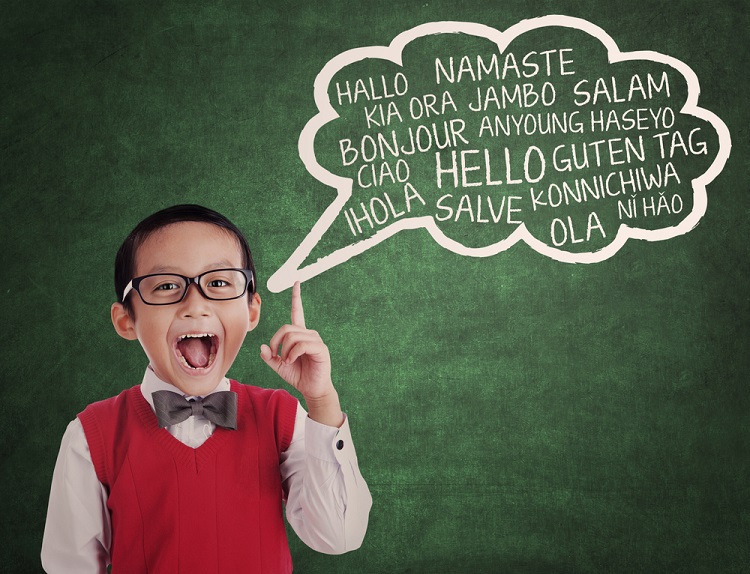Why Adults Struggle to Pick up New Languages

Many adults struggle to learn a second language, but not for lack of effort — the problem may actually be that they're trying too hard, a new study suggests.
Scientists have long suspected that adults' superior cognitive function might actually be a drawback in picking up a new language, giving kids the upper hand. In the new study, when adults were told to try to learn the proper sentence structure and grammar of a new language, the participants actually learned less than those who were not told they would have to take a quiz.
"The most surprising thing about the study is that trying can actually harm learning outcome," Amy Finn, a postdoctoral researcher at MIT's McGovern Institute for Brain Research, told Live Science. "Superior cognitive function is better for almost everything else." [10 Surprising Facts About the Brain]
Trying makes it harder
To test how adults learn a second language, Finn and a team of researchers recruited 22 native English speakers and had them listen to 10 minutes of a made-up language. The vocabulary of the fake language consisted of nine two-syllable words, and each word belonged to one of three categories grouped by sound structure. The participants were told to color while they listened, so they would not focus their full attention on the language.
The researchers then gave the participants a test to see how much of the language they picked up. Each participant had to choose which of two words or which of two sentences was more likely to belong to the language they just heard.
In the second part of the study, 66 native English speakers took the same test. But this time, researchers told one-third of the participants to try to learn the vocabulary; they told another third to make an effort to learn the different categories of words (which was like learning noun classes in a new language); and they told the last third to try to learn the pattern that the categories appeared in (which resembled learning more-complicated grammar rules of a new language).
Sign up for the Live Science daily newsletter now
Get the world’s most fascinating discoveries delivered straight to your inbox.
To make sure the participants paid close attention the whole time, unlike the people coloring during the first study, the researchers asked their subjects to press a button every time they thought they recognized some of the vocabulary or grammar patterns.
Concentrating and trying to learn helped adults master the basic vocabulary, but actually hindered their ability to learn the grammar, researchers found. The group from the second experiment who were told to put effort into learning got about 20 percent more of the vocabulary words correct than the first group who colored while listening to the language. But the first group did about 20 percent better on the complex grammar test than those in the second experiment.
Still, this does not mean aspiring bilinguals should necessarily scale back how much effort they put into learning, researchers said.
"I think it would be bad for adults to come away from the study saying, 'Oh, I should stop trying,'" Finn said. "We're still a long way from being able to prescribe a learning regimen."
Two memory systems
While studies have shown learning a new language is good for the brain and can protect against Alzheimer's, adults often find it more difficult to become proficient in a second language later in life. Children have a much easier time with the grammar because they learn in a different way than adults do, Finn said.
Humans have two main memory systems that influence learning: Declarative memory is the basic knowledge of things like facts and vocabulary, while procedural memory is the one people "get for free without trying," Finn said. It's the way people learn habits and skills, like riding a bike. Much of the time, this kind of learning happens unconsciously.
Humans use the procedural memory system, which develops early in life, to learn complex things like grammar rules. The declarative memory system that helps humans learn vocabulary takes more time to develop. Children have the procedural system without the distraction of a declarative system, and so they pick up grammar more quickly than adults do.
Much more research is needed to understand how adults learn language, Finn said. In a future experiment, she plans to use a magnetic coil that generates an electric current capable of interrupting brainwaves. Such an interruption can briefly take the prefrontal cortex offline. This region of the brain plays a key role in declarative memory, and Finn wants to know if suppressing it can improve adults' ability to learn a second language. Finn also plans to use a more complex artificial language and assign meaning to the made-up words in order to simulate more closely existing languages.
Details of the study were published July 21 in the journal PLOS ONE.
Follow Kelly Dickerson on Twitter. Follow us @livescience, Facebook & Google+. Original article on Live Science.










